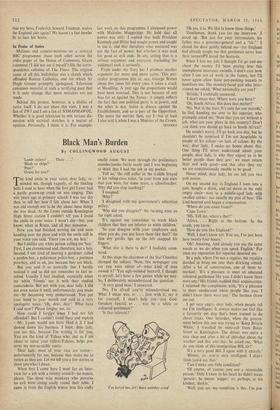In Praise of Satire
Motions and counter-motions on a satirical BBC programme chase each other across the order paper of the House of Commons. Grave comment CI did not see it myself') fills the corre- spondence columns of The Times. The original cause of all this hullabaloo was a sketch which offended Roman Catholics, and for which Sir Hugh Greene promptly apologised. Television consumes material at such a terrifying pace that it is only strange that more mistakes are not made.
Behind this protest, however, is a dislike of satire itself. I do not share this view. I was a fan of TW3 and I am a fan of NSMAPMAWOL. Whether it is good television to mix serious dis- cussion with satirical sketches is a matter of opinion. Personally, I think it is. For example, last week on this programme I discussed power with Malcolm Muggeridge. He held that all power was evil: I replied that both President Kennedy and Hitler had sought power and sought to use it, and that therefore what mattered was not the fact of power, but whether it was used for good or evil ends. In any setting that is a serious argument and everyone (including the audience) took it seriously.
From under my Tory hat I produce another argument for more and more satire. This par- ticular programme hits at, say, George Brown about five times for every once it takes a crack at Maudling. A year ago the proportions would have been reversed. This is not because of any bias for or against the Tories: it simply reflects the fact that one political party is in power, and the other is not. Satire is always against the Establishment, and so is part of the Opposition. The more the merrier then, say I—but at least I also said it when I was a Minister of the Crown.
QUOODLE


































 Previous page
Previous page